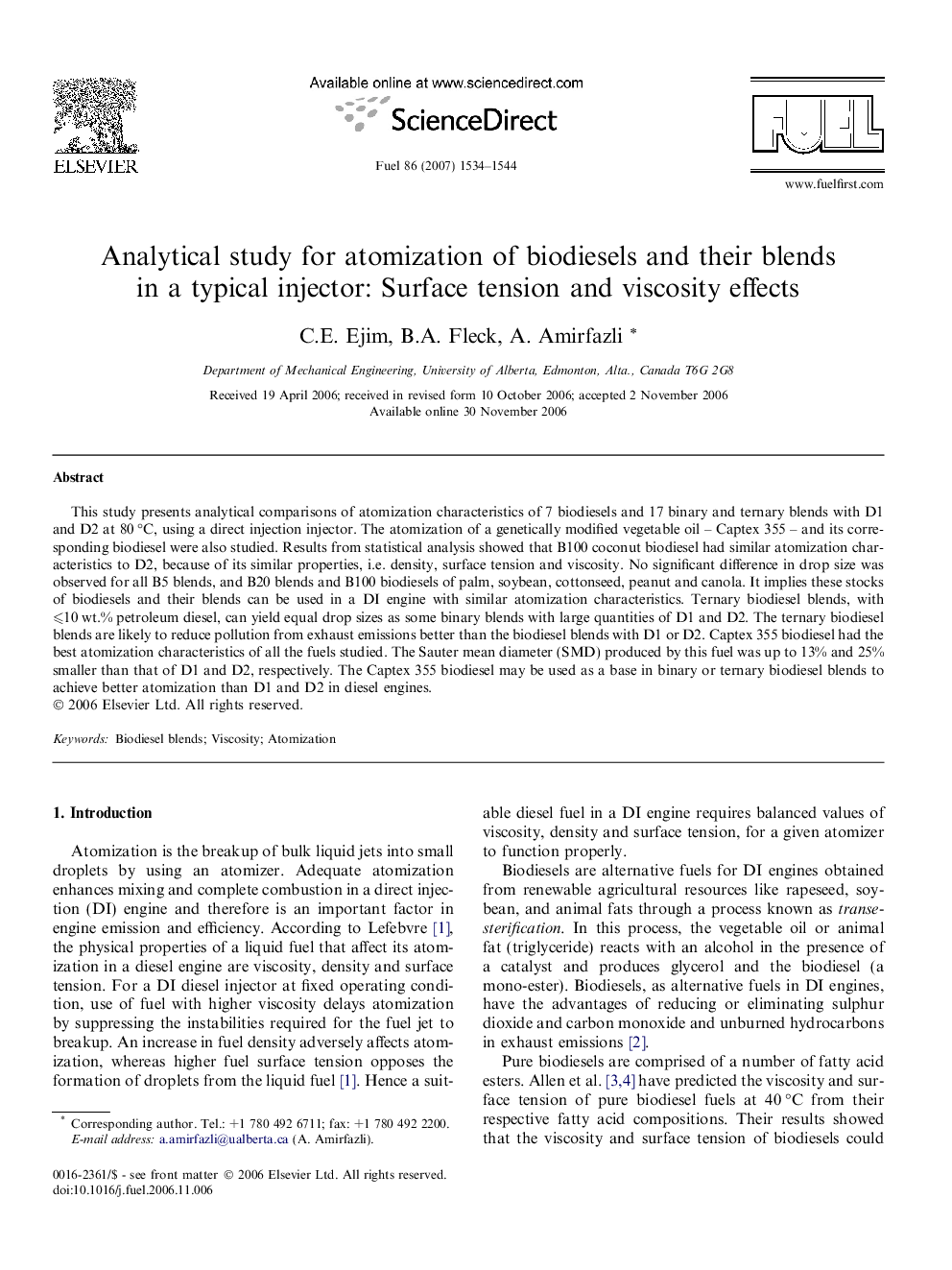| کد مقاله | کد نشریه | سال انتشار | مقاله انگلیسی | نسخه تمام متن |
|---|---|---|---|---|
| 207803 | 461226 | 2007 | 11 صفحه PDF | دانلود رایگان |

This study presents analytical comparisons of atomization characteristics of 7 biodiesels and 17 binary and ternary blends with D1 and D2 at 80 °C, using a direct injection injector. The atomization of a genetically modified vegetable oil – Captex 355 – and its corresponding biodiesel were also studied. Results from statistical analysis showed that B100 coconut biodiesel had similar atomization characteristics to D2, because of its similar properties, i.e. density, surface tension and viscosity. No significant difference in drop size was observed for all B5 blends, and B20 blends and B100 biodiesels of palm, soybean, cottonseed, peanut and canola. It implies these stocks of biodiesels and their blends can be used in a DI engine with similar atomization characteristics. Ternary biodiesel blends, with ⩽10 wt.% petroleum diesel, can yield equal drop sizes as some binary blends with large quantities of D1 and D2. The ternary biodiesel blends are likely to reduce pollution from exhaust emissions better than the biodiesel blends with D1 or D2. Captex 355 biodiesel had the best atomization characteristics of all the fuels studied. The Sauter mean diameter (SMD) produced by this fuel was up to 13% and 25% smaller than that of D1 and D2, respectively. The Captex 355 biodiesel may be used as a base in binary or ternary biodiesel blends to achieve better atomization than D1 and D2 in diesel engines.
Journal: Fuel - Volume 86, Issues 10–11, July–August 2007, Pages 1534–1544